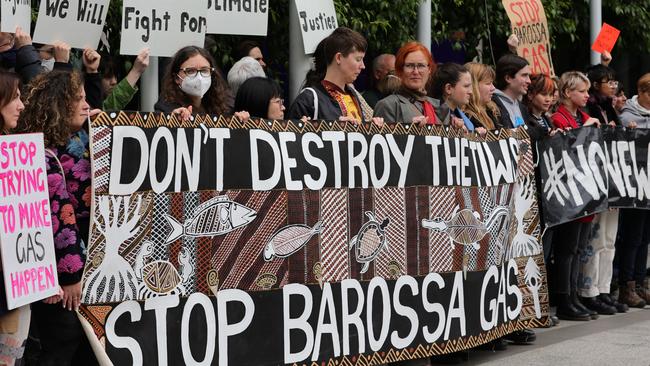EDO’s lawfare hurting investment, Indigenous Australians: analyst
Analyst Saul Kavonic says tens of billions of dollars in potential investment in Australia has stalled due to the EDO’s tactics.

Escalating amounts of “lawfare” by activists and the taxpayer-funded Environmental Defenders Office are “hurting both Indigenous Australians and the nation’s investment attractiveness”.
Writing for The Australian on Monday, MST Marquee analyst Saul Kavonic said organisations including the EDO were bringing legal challenges against major projects to not just delay or block those developments but to try to end a large part of Australia’s resources industry.
“Tens of billions of dollars in potential investment in Australia has stalled due to the EDO’s tactics. International lenders are increasing the cost of lending to Australian projects due to the heightened lawfare risks. Some of Australia’s largest companies have felt little choice but to invest elsewhere such as in North America instead of at home,” Mr Kavonic wrote.

“Australia has lost its reputation as a safe and reliable place to invest. An approval by the Australian government doesn’t mean anything anymore.”
The EDO’s tactics have come under increased scrutiny in recent days after it agreed to cover 100 per cent of the legal costs incurred by oil and gas producer Santos in its defence of a legal challenge against its $5.8bn Barossa gas project near the Tiwi Islands. The proceedings revealed how academics, legal and activist figures concocted a map purporting to show the location of Indigenous songlines based on guesswork and minimal consultation, with a Federal Court judge finding the evidence to be “so lacking in integrity that no weight can be placed on them”.
Mr Kavonic said the biggest victim of the EDO’s conduct had been Indigenous Australians.
“The EDO has undermined recognised Indigenous leadership claims and Native Title bodies, misrepresented and distorted the sacred Indigenous connection to country, and had their Indigenous clients lied to, all in pursuit of the EDO’s ulterior environmental agenda,” he said.






To join the conversation, please log in. Don't have an account? Register
Join the conversation, you are commenting as Logout